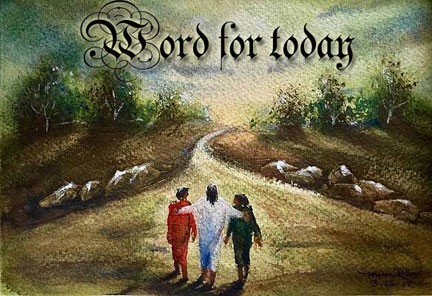Watch
Events
Articles
Market
More
Here's our bulletin for Sabbath coming up on 11/9/2024. I'm looking forward to seeing you all together: https://firstfruits.cc/blog/20....24/11/07/sabbath-bul



A parallelism in #genesis 12:11-17 contrasts Pharaoh's treatment of Abram with Abram's treatment of Pharaoh.
Abram's faith wasn't perfect, but God loved him and protected him anyway. This parallelism shows how God was watching over Abram in Egypt despite his lack of faith.
#biblestudy #lechlecha
https://soilfromstone.blogspot.....com/2018/12/paralle



Now there was a famine in the land. So Abram went down to Egypt to sojourn there, for the famine was severe in the land.
Genesis 12:10
This verse contains an obvious little #chiasm.
Famine > Sojourn in Egypt < Famine.
Famine and exile are metaphors of separation from God. Spiritual famine ends when we learn to be in the world without being of the world.



110724
WORD FOR TODAY “are you a convict?”: Joh 16:8 "And He, when He comes, will convict the world concerning sin and righteousness and judgment;
SPOKEN VERSE FOR TODAY: Pro 27:8 Like a bird that wanders from her nest, So is a man who wanders from his home.
“Faith comes by hearing” positive frequencies spoken out loud hourly.
www.BGMCTV.org




Ignore a man's words. If you want to know what kind of leader he'll be, look at his actions.
#leadership #lekhlekha
https://www.americantorah.com/....2014/10/30/leaders-t



http://GreatNewDate.com is a great place with great Torah people. Although it's a dating site it's also a social media site for singles. It's been growing and blossoming recently.



On this date in history, 11/07/1916: Jeannette Rankin of #montana becomes the first woman elected to the United States Congress. #otd #tdih #montanahistory


